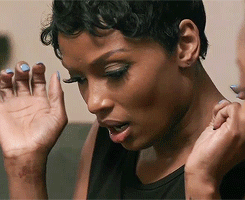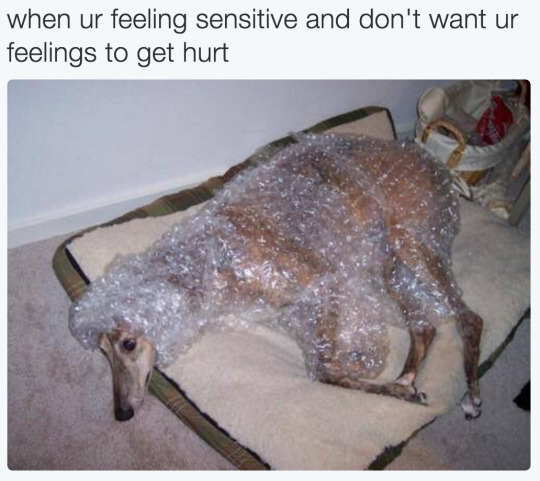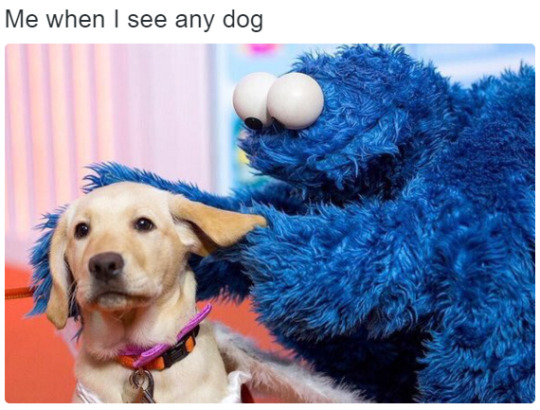Text
#MeToo: On a Couch at a Party
*Trigger Warning*: sexual assault, panic/anxiety, emotional abuse
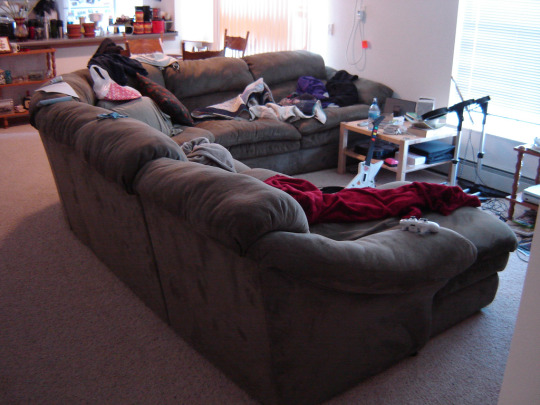
I've had a lot of feelings about #metoo. On one hand, it's been really triggering. It brings back so many different experiences that I try not to think about. It has been shocking and not shocking. I know that so many people endure assault and harassment, but it feels different to have it come out of the mouths of my friends and colleagues. But it has also made me brave. I've thought about sharing my story for a long time, and this seemed as good of a time as any. I share it for me. I share it because I believe there is power in speaking my truth. I share it for all of us. And while sharing does not undo my trauma, it helps me heal, makes others brace, and aims to hold our culture accountable. been a long journey toward gaining the courage to share this story.
Partly, I worry that when I put my story out into the world, I’ll experience victim blaming, and I don’t feel ready to ready to handle that. Being vulnerable is hard and it means that this story is not just my own anymore. But mostly, I’m feel shame - shame that was taught to me by rape culture, shame that tells me that what happened to my body is my fault. I’ve been gaslighted by people who tell me that what happened to me wasn’t a big deal or that I brought it upon myself. It’s taken years of therapy to realize that these things aren’t true. So here is my story, my darkest “me too.”
I arrived at my friend’s party excited but emotionally exhausted. I’d had a lot going on that weekend, and I wanted to let off some steam. I made myself a drink right away. I was excited because a boy I thought was cute was at the party. (Let’s call him Dave.) (Also, I hate that I still feel the need to protect my perpetrator.) We knew each other from a few classes, but not incredibly well. We’d had lunch together once, but nothing overly romantic. I wasn’t sure how he felt about me, and I was hoping to spend some time with him at this party. And I did. And it was going well. We did a tequila shot together and laughed as we sucked our limes after. We talked about some past relationships. I showed him pictures of my cat.
As the night wore on, it became obvious to me that I would need to stay the night at my friend’s house. I asked her if it would be okay and she offered me one of the couches in the living room. The thing that really gets me about that night is that I was trying to make the safest choice. I was taught even before I started drinking that I should never drive if it was questionable, and I was proud of myself for making the right call.
But Dave decided to stay as well. This is where the night starts to get fuzzy in my memory. While some people who do not understand the notion of consent claim that this invalidates my account of my experience, in reality this should be a giant red flag. People who are under the influence of alcohol are not able to consent. If someone is drunk, you should put them to bed and walk away. But that’s not what happened.
I was excited about the prospect of Dave sleeping just a couch away from me. I hoped we might talk early into the next morning. Maybe he would even kiss me. He did. And as things progressed, I told him what I felt comfortable doing and what I didn’t want to do. But he either didn’t notice or didn’t care. Instead, he told me what we would do next. He never asked if it was okay. He narrated our evening, making it clear that he was in control of the situation.
I woke up the next morning in a panic. That night was the beginning of my now ever present anxiety disorder. At the time, though, I couldn’t fully figure out why I felt the way I did. And because I didn’t realize what had happened, I continued to see Dave. Or, rather, I continued to see him when he allowed me to. He would text me when it was convenient, stringing me along to get what he wanted when he wanted it. I found out he was seeing other people, which was fine because we hadn’t decided on anything exclusive. But, all I wanted was for him to be honest about where we were headed. I was interested in dating him, and if he was going to ignore me and go on dates with other women, I was no longer interested. It wasn’t until months later that I realized the ethics of what had happened at my friend’s party.
After months of being strung along and lied to by Dave, I’d finally had enough of his floundering. But the nightmare wasn’t over. We ran in the same circles, and I would see him at parties, triggering my panic attacks each time. I would check guest lists on Facebook events to see if I could expect to see him. I refused to miss an event just because he was attending, but it was excruciating to be in the same room.
Eventually, I decided to reach out to him. I wasn’t sure if he knew why I was so upset with him. I think he thought I was only upset with him because we hadn’t ended up dating. So, I sent him a lengthy email detailing my experiences the night of my friend’s party. But, instead of apologizing, he told me that what had happened was my fault. He told me that I had pursued him that evening and that anything that happened as a result was my own doing. He told me that because I had been drinking and couldn’t remember some parts of the evening, my account my experiences was unreliable.
Sexual assault doesn’t always mean a stranger grabbing you on the corner in the middle of the night (although that happens too, and it’s also traumatic). Most often, though, it comes from people you know, people you care about, maybe even people you want to date. But this doesn’t mean it’s not assault. Just because I was interested in Dave doesn’t mean I “wanted it.” There are thousands, if not millions of stories just like this one: of people who took advantage of others backed into a corner instead of caring for them.
3 notes
·
View notes
Text
Keith “Bo” Tharpe and the Myth of the Just Execution
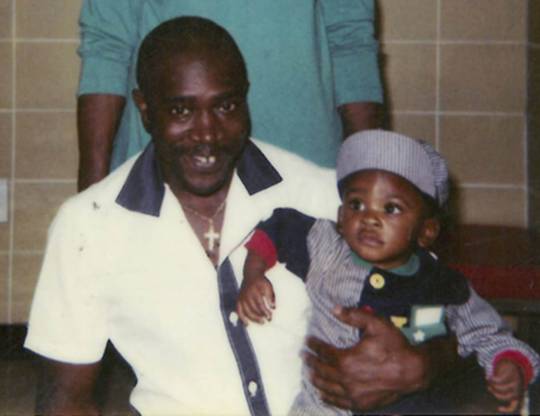
Many of these words were taken from an email by Mary Catherine Johnson to members of GFADP
As I sit here on Monday, September 25, hope remains alive that Keith “Bo” Tharpe will be granted relief from the courts or clemency from the State Board of Pardons and Paroles. He has some compelling legal issues that you can read about in the article links at the end of this post. His clemency hearing is scheduled for today. But this timing could not be more painful for his family. Should the execution occur tomorrow, it will be 27 years and 1 day since Mr. Tharpe’s crime occurred on September 25, 1990 - the murder of his sister-in-law, Jaquelin Freeman. So, in writing this, I also remember Bo's victim and her family.
Keith Tharpe is known by his friends and family as "Bo."
Bo is surrounded in love and support by a large family and many friends. Many of these people will be with him on Monday and Tuesday during visitation at the prison.
Bo married his high school sweetheart, Migrisus Freeman. Together, they had four daughters: Kesha, Melissa, Candice, and Brittney, in addition to Tameka, Bo’s daughter from a previous relationship. Friends and family remember Bo as a family man and loving father, who enjoyed spending time with his wife and children.
Bo has an exuberant personality that fills whatever room he's in. Gregarious, loving, friendly and generous are words frequently used to describe him. He loves to talk and visit, and he derives energy from others. One of his friends testified that it was good to have Bo around because he always makes you smile.
Bo is a devout Christian. He was recently baptized again with water that a friend brought back from the Jordan River, which gave Bo a lot of comfort and joy. His faith has sustained him through this extremely difficult time.
Bo has used his time in prison to overcome his addictions to crack cocaine and alcohol, commit himself to God through Bible study and conversations with spiritual advisors, accept full responsibility for his choices and actions, develop deep remorse for those he caused pain, reconnect with friends and family whom he alienated with his crack addiction and crime, build a community of friends both inside and outside of prison with whom he shares his faith and life lessons, and learn to walk God’s path.
Bo suffered an early addiction to crack cocaine, a drug that would quickly ruin his life and the lives of many people around him, including, most tragically, Jackie Freeman’s. Even before he was born, Bo was exposed to alcohol: his mother drank liquor and beer every day of her pregnancy with Bo. After he was born, alcohol remained a central part of his everyday life. Throughout Bo’s childhood, neither parent worked steadily, but instead drank excessively and ran an illegal moonshining business out of their home. Bo’s sister Audrey had this to say: “There were family members that Keith just didn’t come around when he was using. When he did, it was like his character had changed. . . . That was not the normal Keith, not the loving and kind Keith who cared deeply for his family. The drugs don’t excuse what he did, but I also know that the way Keith behaved on drugs wasn’t who he was as a person before, or who he is now.”
Bo wishes more than anything he could take back that day and give back Ms. Freeman’s life. Many of the family members affected by this senseless crime still support clemency for Bo. The timing of Bo’s clemency proceedings has been especially painful for the families, given that his hearing is scheduled for the 27th anniversary of Jackie Freeman’s death. These victims know that Bo must be punished, but have witnessed his change and growth after overcoming his addictions and committing his life to God, family, and friends. They know that Bo Tharpe today is not the same man who committed this horrible crime.
Bo conducts himself with humility. He treats both the staff and other inmates with respect and generosity and, drawing on his own experience and mistakes, acts as a positive, peace-promoting presence in the prison.
When Bo was asked if he had a message for his supporters, he said to tell everyone that he really appreciates all of your love and support - that he could feel it surrounding him. He said, "Tell them I love them, that it means a lot. I'm gonna get through this. God is with me. God is good."
Bo’s hardship began early on, with a difficult childhood complicated by addiction - an addiction that was primarily a result of his parents’ addictions. His addiction led to a violent crime for which he feels much remorse. He was convicted of this crime by a racist jury - one that called him n*gger in the courtroom, one that doubted his ability to have a soul because of his race, one that claimed they wanted him to receive the death penalty because of his blackness.
This is why Bo deserves to live. This is why all prisoners on death row deserve to be looked at in the fullness of their humanity. It is never an easy, straightforward story of a hardened criminal. Often, it is a story like Bo’s - full of early childhood trauma that led to addiction and crime. This is a place where our world is broken. And we have an opportunity to heal it, even if just a tiny amount, by allowing Bo to live.
TAKE ACTION (WHAT YOU CAN DO):
1. Text RESIST to 50409 to fax Gov. Deal.
2. Call Gov. Deal at 404-656-1776.
Tell him you oppose the execution of Keith Tharpe, and that you encourage him to put pressure on the Board of Pardons and Paroles to stop the execution.
3. Share this post or facts from this post about Bo to tell his story.
4. Share the articles below.
Use the hashtags: #KeithTharpe #notinmyname #endthedeathpenalty
5. Contact the Georgia Board of Pardons and Paroles.
Tell them you are calling for Keith Tharpe’s death sentence to be commuted, that you express deep concern at evidence of a juror’s racist views uncovered on appeal and at the fact that the courts did not consider it because of procedural issues; Emphasize that you are not seeking to downplay the seriousness of violent crime or its consequences.
State Board of Pardons and Paroles
2 Martin Luther King, Jr. Drive SE, Suite 458,
Balcony Level, East Tower,
Atlanta, Georgia 30334-4909, USA
Fax: +1 404 651-6670
Email: [email protected]
Salutation: Dear Board Members
Articles to share:
[1] Why I Believe the Supreme Court Needs to Stop This Georgia Execution http://www.esquire.com/news-politics/a12235095/keith-tharpe-georgia-execution/
[2] Ga. Is Going to Execute a Black Man Convicted by a Racist Juror https://www.theroot.com/ga-is-going-to-execute-a-black-man-convicted-by-a-raci-1818677795
#KeithTharpe#endthedeathpenalty#deathpenalty#abolishthedeathpenalty#Georgia#criminaljustice#justicereform#racism
3 notes
·
View notes
Photo

Typewriter Series #1827 by Tyler Knott Gregson
*My new book, Wildly Into The Dark, is out Now! Snag a copy? bit.ly/WildlyIntoTheDark *
181 notes
·
View notes
Text
Undervalued
This poem comes primarily from my work in a nonprofit that serves people experiencing homelessness. An important part of this work is learning and telling the stories of people who are on the margins. Their stories are precious. Treat them with care.
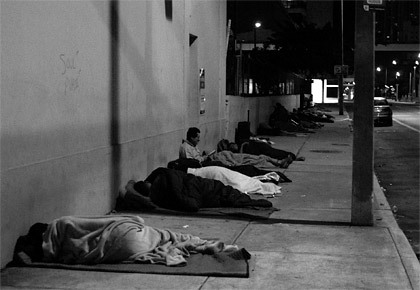
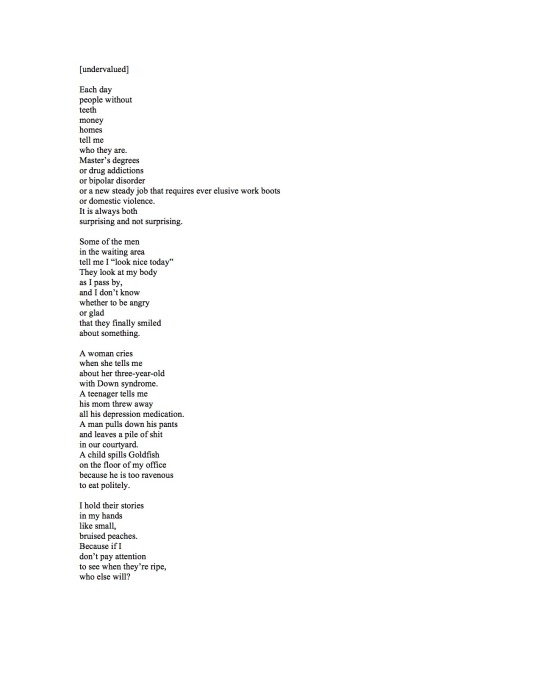
2 notes
·
View notes
Text
Why I’m Going to Work on #DayWithoutAWoman
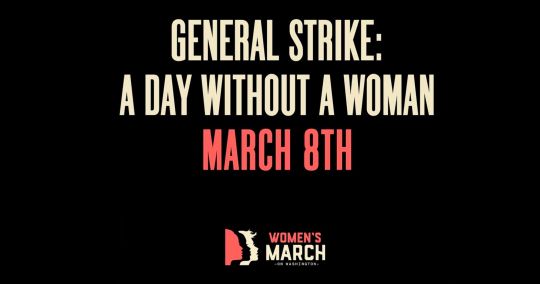
I work at a social services agency that serves people experiencing homelessness. From 9am-12:30pm every week day, I meet with people one on one to hear about their needs and do my best to give them resources. So, when I first heard about the #DayWithoutAWoman strike, my primary reaction was that I wouldn’t be able to participate in the way that I wanted. I would love to strike. If you know me, you know that I get really fired up about marches, rallies, and other large public displays that speak truth to power. But I knew participating in the Women’s Strike would negatively influence the very people who experience the greatest sorts of marginalization. By not showing up for work, I would take away a quarter of the staff at my organization of four people (three of whom are women), and we wouldn’t be able to serve people experiencing homelessness as well as we would like to. I want this strike to negatively affect some individuals, but people living in poverty are not the people who need to bear the brunt of it.
However, my situation is not unique. In meetings I’ve attended for social services agencies in Atlanta, at least 75% of the individuals present have been women, maybe more. Helping professions including social work, teaching, nursing, counseling, and nonprofit work are dominated by women. So, I’m sure there are many of us choosing to work today because our clients should not be the ones who are punished. However, those who are in power to make change - the government, the wealthy, white people, men - should take a moment to fully realize what it would actually mean if all women in these helping professions chose not to work today. It might not affect them directly, but the affect on society would be devastating.
Our homeless would have no one to feed or clothe them. Our sick would have no one to care for them at their bedside. Our children would have no one to teach them. Our mentally ill would have no one to guide them. Our elderly would have no one to watch over them. Of course, I acknowledge the men who work in these fields, too, and I am grateful for them. I am also grateful for the women who work in male dominated fields and chose to strike today, because that takes bravery. But, it is impossible to ignore that the women in our society are still primarily doing the work of taking care of the most vulnerable. And because of this, many of us chose work today because a strike would seem selfish. Our women are pouring themselves out each day and doing the difficult emotional and physical work of caring for those on the margins, and we cannot stop doing this work in order to strike today.
So, what can I (or you!) do today instead? There are a lot of ideas going around about other ways to contribute to the strike, but here are a few of my favorites.
1. Wear Red: You’re probably aware that wearing red is one of the things that the Women’s March is encouraging as a part of #DayWithoutAWoman. It’s a great way to show solidarity if you have to be in the workplace or choose to be because of the nature of your job.
2. Fight the Patriarchy: This can mean so many different things - don’t shave, don’t wear make up, don’t fix your hair. What things do you feel like you have to do each day that society has told you that you must do as a woman? Free yourself from one or all of these things today! Celebrate your body for what it is, not what you’re trying to force it to be.
3. Refuse Catcalling: Don’t give into requests to “smile.” Don’t laugh off catcalls - ignore them or say something back! (Options include: “I’m a human, not an object, so please treat me like one.” and “You don’t know me and have no right to talk to me that way.”) Never do something that makes you feel unsafe, but don’t feel like you have to play along today!
4. Speak out about your experiences of sexism: If you are a survivor of sexual assault, domestic violence, emotional abuse, or another trauma, work toward what it would mean to tell your story. The more we stay silent about these things, the more they will continue to haunt us and happen to other women. If you have not experienced a trauma, first be grateful, and tell your own story! Tell stories about sexism in your workplace or creepy guys on Tinder - be open about your experiences of sexism to speak truth to power.
5. Don’t Buy Anything: This is another option advertised widely by the Women’s March organization. Refuse to buy anything from big companies, and purchase only if you must from small businesses that are owned by women and/or people of color.
1 note
·
View note
Text
New York
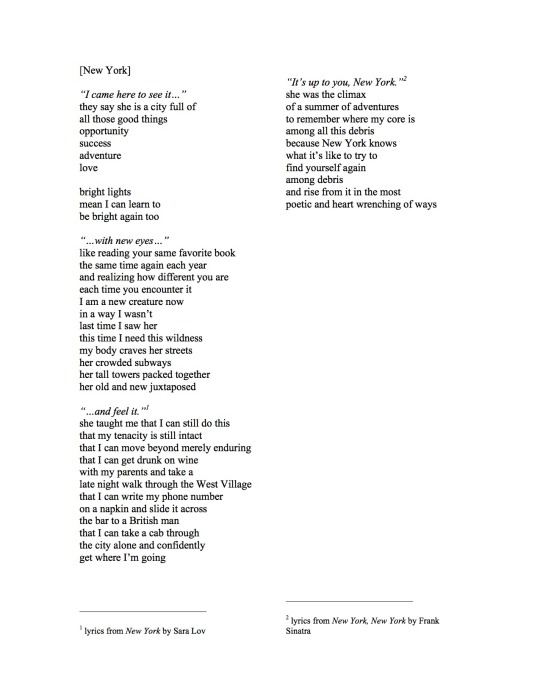
2 notes
·
View notes
Text
fireworks and gunshots

I turn the knob,
cold and metallic.
I hear the air suction
between the door
and the frame
exhale as I
push myself
into the living room.
I find exactly
the thing I expect
not to find,
the thing I have
dreaded finding
on a couch
in a crowded living room
like this one.
You are sitting
there wearing the same
shirt that my boyfriend
wore yesterday.
I turn immediately
to leave,
tasting that primal
fear in the
back of my throat
like an animal,
suddenly prey.
But instead I
put my head down
and enter
the thick-aired room.
I am
haunted by other
living rooms
we both
stood in,
couches we both
sat on, but tonight
I dig my heels
into the floor
and laugh even
more loudly.
I drink my entire
flask of whiskey
and refuse to be
in the same room.
On the way home
I am crying quietly
into the seat belt strap
when
the man I love thinks
that he hears gun shots.
He is spooked and
turns right
too early
to get away
from the noise.
And I realize, then,
that he knows
what it feels like
to sit in the same
house as you,
always spooked
and misinterpreting
the noises.
2 notes
·
View notes
Text
Nasty Women: a poem
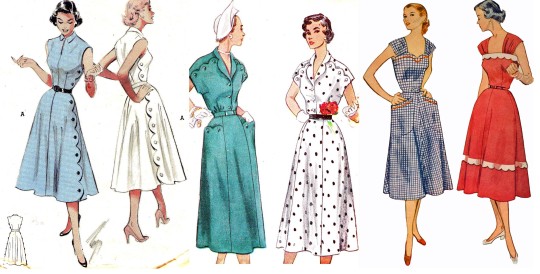
We beat our hands into
the muddy ground,
centuries of asking
for more,
always perceived as
a threat
no matter how we phrase it.
Internalizing requests
to be less,
settling for
assistant,
vice,
“Mrs. John Smith.”
We have our own names
and strong bodies,
consistently colonized
by laws
and vanity
and men’s mouths.
So the pain
of losing again
to a man
who has no idea
that he is a perpetrator
is no surprise,
but just another
thing to overcome.
We will continue
bringing new life,
subversively
proving our strength,
beating our hands into
the muddy ground,
packing down the seeds
in the earth
to grow.
2 notes
·
View notes
Text
It’s Not Just About The Election
Today, I feel heartbreak. I feel anxiety that has been building over this entire election season and instead of breaking open and releasing it has just grown bigger and more bloated. I spent most of my work day trying to not cry and did not succeed. It feels like I am enduring a national tragedy. If you are feeling these same feelings, or if you are feeling entirely different - that is ok. Whatever you are feeling, it is valid. If you feel like steeling yourself for the fight, stand and plug yourself in to speak against injustice. If you feel like sitting at home and holding your family, do that. If you feel helpless, know that you are loved and not alone.
I know I am not alone in these feelings. I see them expressed on social media: people are encouraging friends to practice self-care, posting picture of animals because they don’t know what to say, sending messages of kindness and hope in the face of oppression. If you are a Trump supporter or someone who is not feeling the emotional affect of this election, you may be asking, “why is everyone so upset? The result are in. Why can’t they just get over it?”
Here is why. It’s not just about the election.
No, this is so much bigger. This is about watching someone spew messages of hate, messages that are personal and pointed and damaging, and thinking “well, this is painful, but there’s no way people will actually agree with what he’s saying enough to put him in power.” But, here we are.
This is about living in a time when it seems like we’re starting to turn so many corners: the glass ceiling continues to be shattered, LGBTQ rights are at the forefront of change, America is beginning to confront it’s difficult and enduring issues surrounding race relations, the list goes on. None of these problems have been solved. But the fact that people are willing to admit that they are problems to begin with is a step. Those of us whose bodies and homes and daily actions are personally affected by these issues continue to hope that the voices of hate and oppression are few and far between - that these voices don't actually reflect what the majority of people think and feel.
However, The results of this election feel like they prove otherwise. Electing Donald Trump says to people of color, LGBTQ people, Muslims, immigrants, women, people in poverty, and people who are differently abled: “You are not safe here. Your body is a problem; your closely held beliefs are a problem; you are not welcome.” It says to us that a country built on acceptance and freedom no longer has room for difference. It says that the United States of America allowed fear to outweigh love and understanding. And that is so painful.
Women watch as a well-qualified and intentional female candidate is told that her best is no match for a half-assed campaign of a man who has no qualifications for this job. Victims of sexual assault and emotional abuse watch what for them is the equivalent of their perpetrator rise to power despite his history of abuse. Muslims who endure hate speech on the street when they choose to wear religious clothing watch a man who threatened to remove them from this country take the helm. People of color watch a man endorsed by the KKK become their new leader. This pain is deep, it is intergenerational, and it is valid.
If you do not feel this pain, you are lucky. I do not hope for you to feel it because it is terrible. And if it is terrible for me, I can only imagine what people more marginalized than myself are feeling - as a white cisgendered, able-bodied woman I am barely the tip of the iceberg. Crisis hotlines today have been overwhelmed with calls from people who feel so threatened or scared that they want to end their lives or don’t know who else to turn to. This is not just anger that an election did not go our way. This is existential fear and concern for physical and emotional wellbeing.
In this time of pain and fear, I ask you this:
Get to know someone who is different from you.
Yes, I mean you. All of us. Because I have to think that we are all feeling fear. Fear is what got us to this place. A majority of voters allowed fear of the other to drive them to vote for someone who they felt could keep them safe from people who are different. This is no excuse for their actions, but it is a starting point toward unity.
If instead of pointing fingers, we can all begin to address our fears together, we might be able to take one small, tentative step forward. If you are white, make meaningful relationships with people of color. If you are a Christian, learn about those practicing the Muslim faith in your city. If you are straight, have dinner with a gay couple. We don’t need to ask the hard questions here. We need to realize that we can all sit around the same table, eat the same food, and live on the same land without being suspicious of the one next to us.
Of course, the solution will not be that quick or simple. We are all so tired. Take time to feel your feelings. Practice kindness. And know that our mutual willingness to be vulnerable is the solution to all of this fear.
We can do this together. You are loved.
1 note
·
View note
Quote
I blame that one Nick Drake album,
blame the missed bus,
blame the one more drink,
blame the way he holds his glass of wine
like a crystal ball at a county fair,
like beckon,
like look closely,
like if I squint my eyes
couldn’t it be my name in his mouth?
I tell my friend on the phone,
“Everything is such a mess.”
She says, “Brenna, I love you,
but look at your hands.”
And I don’t know how I missed it,
these fistfuls of mud,
these months finger-painting the walls;
pressing dirt
into any clean thing I can find.
“There Are A Lot Of Villains In This Story, And Most of Them Are Me,”
Brenna Twohy
(via brennatwohy)
360 notes
·
View notes
Quote
The moments after
we stir from sleep to waking,
are my favorite.
Daily Haiku on Love by Tyler Knott Gregson
Fun extras at Patreon.com/TylerKnott !
Chasers of the Light & All The Words Are Yours are Out Now!
(via tylerknott)
299 notes
·
View notes
Text
Why We Need Feminism
In honor of International Women’s Day yesterday, it seems only fitting that I should finish this blog post on feminism that I’ve been working on for several months now. The catalyst for writing this post occurred back in September. I was on my way to a gathering of fellow seminarians at a friend’s house. I got there late so I had to park a block or so down the street because the cars of my friends were already lining the road. As I walked the two minutes from my car to her house, a black SUV slowed down beside me. Great, I thought to myself. Just what I need right now. Some guy trying to hit on me. Exactly as I suspected, a man not much older than me rolled down his window and said “Hey, how are you?” or something to that affect. I ignored him. He asked a second time. I ignored him again. He asked a third time. I responded a stoic “fine” while continuing to look ahead of me and pulling out my phone just in case. “You look nice.” “Thanks” - still emotionless, still refusing to look at him. He asked me where I was going and what I was going to do at the party I was attending. When I arrived in front of my friend’s house, I left the driver of the SUV without any parting words.
There are two important aspects of this interaction. The first is that it’s so incredibly common it’s ridiculous. This has happened to me many times since September, none of which I particularly remember. Does it make me feel unsafe? Sure, sometimes. But most of the time I forget immediately because it happens at least once per month. And not just to me. To every woman I know. Going to the grocery store, the bank, on a run…any and all of these activities could and usually do involve a yell out of a car window or an uninvited comment from a man old enough to be my father. Sweatpants or prom dress, morning or evening, it doesn’t matter. This happens daily, no matter who you are or what you look like. It’s a miracle to women when they go somewhere and this doesn’t happen. The second important thing is that I didn’t respond to this guy how I wanted to. What I wanted to say was “Stop talking to me, leave me alone, and don’t do this to women anymore.” But I didn’t. Because it would make me feel unsafe to fight back. To respond with any sort of force to instances like this could potentially result in violence from the other party. Ultimately, it’s safer to smile, say thanks, and keep walking, even when the fire of feminism burns in your bones and you want to punch him in the face. You don’t. Because it’s safer to let it go.
Most of the time, instances like this don’t result in violence (maybe because women are choosing my same method and just smile instead of pushing back). In fact, the more I talk to other women about experiences of assault, the more I’m realizing that many experiences of rape, assault, and abuse happen not by a stranger passing in a car (although this definitely happens and should not be made light of), but rather by boyfriends, husbands, friends, and dates. I’m in no way an authority on sexual assault, but I’ve had quite a few conversations over the past few months that have led me to believe that most women have a story of assault. The problem is, most of them might not even label these stories as assault. The media tells us that rape is a black and white issue. Either you were raped or you weren’t. And if you were, half of the people you tell won’t believe you. How much more difficult, then, would it be to get people to take you seriously about being sexually assaulted by someone you were already planning to have sex with? Does this sound ridiculous to you? Let me tell you two stories (both true, names changed).
Lauren had a huge crush on David. They ended up at a party together one night and after quite a few drinks found themselves kissing. Lauren was not on birth control and David didn’t have a condom. After a few minutes of fooling around, David told her they should just have sex anyway and he would make sure she didn’t get pregnant. Lauren didn’t stop him because she did want to have sex with him and because she was drunk. In a separate encounter with David, the morning after they had slept together, he started having sex with her, again without a condom and completely without asking. Lauren does not consider herself a victim of rape or sexual assault but knows that what happened with David wasn’t quite right. She never said no, but she never said yes either.
Maria had been dating Xan for several months. He was her first boyfriend and her first sexual partner. One night, they had sex as usual and then went to sleep. Later that night, Maria woke up to Xan raping her while she slept. Xan tried to claim that he hadn’t been aware of what he was doing, but the fact that he had bothered to put on a condom proved otherwise. Maria continued to date Xan but developed restrictive eating habits and binge eating issues as a result of the trauma of that experience.
These two women were not attacked by someone they didn’t know. They hadn’t not wanted to be sexually involved with the two men they were with. But what happened with both of them is unacceptable, disturbing, and all too common. Because both instances happened within some sort of relationship, it seems unlikely that anyone would take them seriously if they were to complain. There is a gray area within sexual assault that makes it very difficult for women with experiences like Lauren’s and Maria’s to be open and come to terms with it. Because of that, most women feel alone in these experiences. But, chances are, many of the women you know have been victims of something like this.
Not all experiences involving rape culture and the oppression of women are this severe. Some of them are sneakier and quieter, making them even more difficult to identify. They are so embedded in our culture that they seem almost ordinary. (Examples true, names changed.) Emily’s college is having a party called “Gym Teachers and Yoga Pants” at which the men all dress up in athletic clothes as gym teachers and the women are required to wear skin tight yoga pants to get in. On a recent night out at a bar with friends, Jasmine declined a guy’s offer to dance, and he responded by literally picking her up to prove that he could. Hannah joined OkCupid and over half of the messages she received said things like “Wife Material” and “I could be your pet” and “Send nudes.” On one level, especially when compared to the stories of Lauren and Maria, these things seem to almost not matter. But they do matter. They play into rape culture, show how men think they should have control over women’s bodies, and put issues of gender under the microscope. These things are not okay, and if you think they’re ok, then you are the reason we need feminism.
Yes, things are better than they were. Women can vote. Women sometimes have healthcare as opposed to never having it. Women can, potentially, hold most of the same jobs as men. These are vast improvements over the past century. But we’re not there yet. The discrimination is sneakier now in many ways which makes it more difficult to pin down and deal with. But until women can make the same wages as men, go to the grocery store without being told by a strange man to smile, and go out to a club without fear of sexual assault, we still need feminism. I dream of a day when we can call feminism an obsolete term, but today is not that day.
Lastly, I want to acknowledge the shortcomings of my perspective. I am a white feminist, which means that most of these stories do not include the intersectionality of discrimination experienced by women of color. I come from an upper-middle class family, which means that I cannot speak to the experiences of poor women. I am American, which means I cannot speak to the experiences of women in other countries where women have less of a voice. But imagine, if things are like this for a white wealthy woman and her friends, how much more difficult must they be for women experiencing even more layers of discrimination on a daily basis.
By all means, we still need feminism.
2 notes
·
View notes
Text
2015
“Once you start to awaken, no one can ever claim you again for the old patterns. Now you realise how precious your time here is. You are no longer willing to squander your essence on undertakings that do not nourish your true self; your patience grows thin with tired talk and dead language. You see through the rosters of expectation which promise you safety and the confirmation of your outer identity. Now you are impatient for growth, willing to put yourself in the way of change. You want your work to become an expression of your gift. You want your relationship to voyage beyond the pallid frontiers to where the danger of transformation dwells. You want your God to be wild and to call you to where your destiny awaits.”
John O’Donohue
A year ago today, I was a different person. In some ways, we’re always changing and growing and moving, and probably the beginning of each year feels like a significant distance from the year before. Every now and then, though, there is a year that changes everything. A year in which you both lose yourself and find yourself. A year so paramount that your previous self might not even recognize who you are now. 2015 was that year.
I spent the first month of this year doing well in the most mundane sense. I started the semester off strong, going to the gym before class, making smoothies for breakfast, and doing all my reading in the library in the afternoons. I set a routine for myself and was proud that I stuck to it. Things were stable. But this was the infamous calm before the storm. What happened next is what I have begun to refer to in my own writing as The Storm. January was the last time things would be normal for me for a very long time.
February brought destruction. The Storm. My five year relationship fell apart. Something that had seemed so stable and sure as a part of my future suddenly revealed its holes and rotted spots. Everything I thought I knew imploded. I developed anxiety. I walked around feeling like I had an itchy sweater inside my chest. I spent spring semester reeling from landslide after landslide, and watching the ground crumble underneath me. I was proud of myself, though, for saving face, for going to class every day dressed and made up like nothing was wrong.
I lost my sense of self. I didn’t know what the future held, next year or next week. Everything that had seemed permanent was gone. The first thing that brought me out of my hole was my work with Kelly Gissendaner. In March, I was reminded that, even in my own Storm, I still had the capacity to care about others. I could still stand for something. I could still say important things. I could still make something good happen. All of me was not lost. However, the act of abandoning school and self-care for Kelly on top of trying to live through The Storm left me exhausted. I crawled through the rest of the semester on hands and knees.
In April, I was reminded that I could still laugh. It had been months since I had really laughed. I made music with my friends and went to dinner still in our choir dresses and had fun for the first time in what seemed like forever. I could still find joy. I could still find love. I could still have hope.
In May, I finally let go of all the pieces of the relationship that I had been trying to force back together. I made the most difficult decision I’ve ever made and walked away from something that had, for the most part, served me well. At first, I felt like everything was falling out from underneath me. But I think I needed the fall to figure out who I was at the bottom.
I spent the summer finding myself, which is the most cliché way to say that but also the most true. I went for long walks to nowhere listening to the same songs over and over again. I went on dates with people I met on the internet. I learned from people experiencing homelessness that there is something good in every day if you look hard enough. I wrote more poetry than I’ve written in years. I typed out my stream of consciousness thoughts on my computer and cried. I went to the Wild Goose Festival and danced barefoot in the dirt and learned about forgiving myself. I went to the beach alone and watched the sunset and the sunrise and a meteor shower at 3am. I went to New York City and looked at the strongest buildings that were made out of the worst ashes.
I started the fall semester warily, unsure if I remembered how to do school well. I still struggled to navigate anxiety and panic in my everyday life. Not long into the semester, I found myself fighting for Kelly’s life again. And when she was executed by the state, it took a few months before I went a day without crying. I learned what it looked like to pour my whole self out for something I believed in. In some ways Kelly had saved me without ever having met me but I hadn’t been able to save her. I’m still working to find the hope that Kelly left behind.
I ended this semester with nostalgia, knowing that I would only do it one more time. That in a matter of months the people who have cared for me on my worst days will be in different states. But it has all been worth it. It has been worth it to endure The Storm to come out the other side stronger. It was worth it to fight for Kelly. It was all worth it.
If you had asked me last December 31st what I would be doing the next year, I would never in a million years have guessed I would be here: drinking coffee and sitting on the couch next to Tyler while he reads Panikkar, having found the kindest person who cares for me in the best ways, and still not knowing what the future holds but knowing that I am happier than I have ever been. 2015 didn’t turn out the way I planned. But, in the end, it turned out better than I could have imagined. And for that, I am grateful.
0 notes
Text
A Christmas Reflection
This season, Christmas seemed to come too quickly, when I wasn’t quite ready for it. This semester was a busy one, and continues to be busy as I try to finish my essays for provisional ordination, look for jobs, and complete my last year of seminary all at once. It was busy for all of us. It was painful for all of us in different ways. Our government continues to barely crack its doors to the thousands of Syrian refugees in need of kind hands and warm hearts. The state where I live continues to kill without mercy, claiming it is justice. We continue to be a people divided by race even when we deny it; especially when we deny it. Violence abounds, both physical and emotional, caused by guns and hateful, prejudiced words. It comforts me, somewhat, to know that maybe no one else was quite ready for Christmas to be here yet, either. That maybe we all feel like there is actually another week before we sit in a candle’s glow and gather our family to sing “Silent Night.” A week for things to calm down, for the bad things to pass away and for us to finish properly preparing for this holiday.
But that’s the beauty of it all: that we are never ready. We can never be ready. We try. With Advent Wreaths and decorations. With a slowly growing pile of presents for people we love. With ornaments from our childhood hung on branches like trophies despite the embarrassing lack of artistic skill. And these things are meaningful in all their own ways, which is why we continue to do them. No matter how much we try to prepare, though, Christmas just seems to sneak up on us.
The good news is that we don’t have to be ready. That seems to be the point, actually. Christ comes when we are not ready. Christ comes when there is violence and sadness and brokenness. Christ comes because of these things. Christ comes despite these things. Very rarely will we have a perfect Christmas, with all of the right presents delivered on time and all the right food cooked exactly right and no one running late. But that is why God was made manifest among us, because we can never make things perfect. For a perfectionist like myself, this is a hard thing to surrender, although I know it’s true. We are not ready. We are not perfect. We have not solved everything. The terrible things don’t end just because we make cookies and wear festive sweaters. And it is because of the dark places in our own hearts and in the world that God gives us a thrill of hope on this day and every day to come - a sliver of what God’s kin-dom feels like. The small moments of joy when someone’s eyes light up because they received the gift they most wanted. A moment of silence when a family is gathered around the tree. A moment of chaos when the children run around in anticipation. This is the hope. That even among all of the broken places, the light gets in. In the bleakness, there is born quietly, one who can offer wholeness, healing, and life.
“In the bleak midwinter, frosty wind made moan,
earth stood hard as iron, water like a stone;
snow had fallen, snow on snow, snow on snow,
in the bleak midwinter, long ago.
Our God, heaven cannot hold, nor earth sustain;
heaven and earth shall flee away when God comes to reign.
In the bleak midwinter a stable place sufficed
the Lord God Almighty, Jesus Christ.”
0 notes
